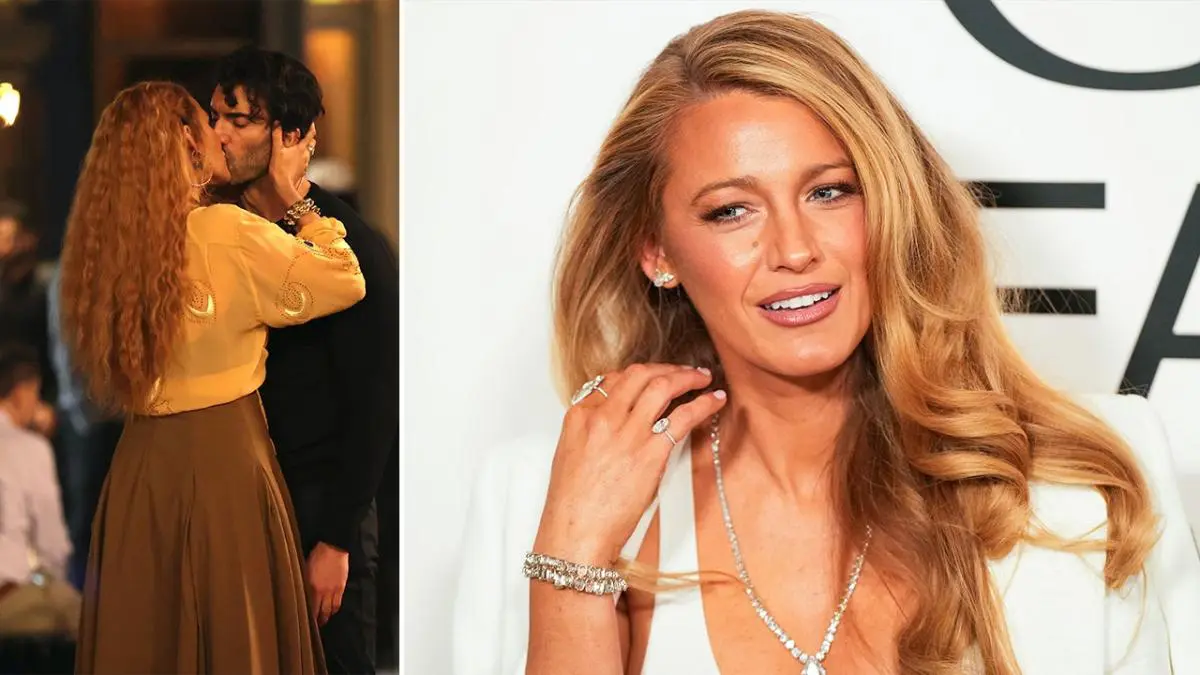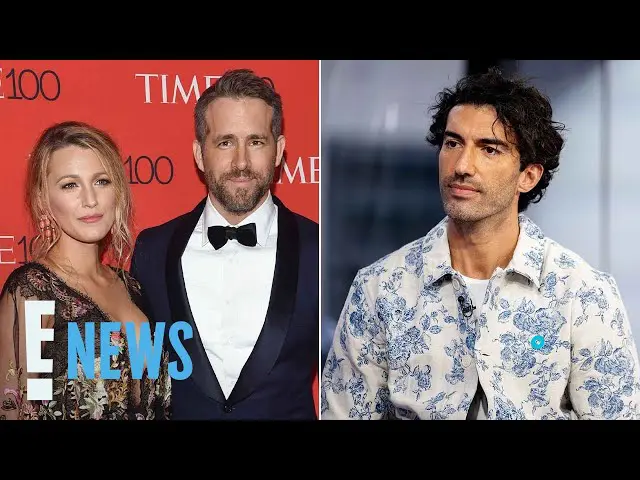In a surprising twist in the ongoing legal saga between Blake Lively and Ryan Reynolds versus Justin Baldoni, the couple’s legal team has formally requested a gag order against Baldoni’s lawyer, Bryan Freedman. This request comes after Freedman made public remarks and shared unedited footage related to the filming of ‘It Ends With Us’, a project that has been at the center of controversy. The implications of this legal maneuver extend far beyond the courtroom, potentially reshaping public perception and influencing a jury pool should the case progress to that stage.
This post delves into the details surrounding the request for a gag order, the context of the allegations against Baldoni, and the broader implications these legal battles could have on Hollywood and celebrity culture.
The Background of the Case
The legal tangle began when Blake Lively filed a sexual harassment complaint against Justin Baldoni on December 20, 2024. Allegations arose concerning Baldoni’s behavior on set, which Lively described as ‘disturbing’ and ‘unprofessional’. This initial claim set the stage for an intense legal confrontation that has drawn considerable media attention.
Unpacking the Allegations Against Baldoni
Lively’s lawsuit points to specific incidents of misconduct that she claims affected her professionally and personally. She has accused Baldoni of creating a hostile work environment, which she argues violated not only ethical standards but also legal ones. Such allegations are serious, especially in an industry where the #MeToo movement has shed light on the darker sides of Hollywood.
As the case plays out, details surrounding these allegations have become tantalizing for the media and fans alike. Each new piece of information has the potential to sway public opinion, making the role of media representation a critical factor in the proceedings. You can find detailed coverage of these events in articles on major news sites such as AOL and E! Online.
Understanding the Gag Order Request
The motion for a gag order filed by Lively and Reynolds seeks to restrict Bryan Freedman from making any public statements that could potentially influence future legal proceedings. This request was laid out in a letter addressed to Judge Lewis J. Liman, asserting that Freedman’s comments and media appearances have already begun ‘to taint the jury pool’. The couple’s legal team argues that Freedman has engaged in a continuous stream of public discourse surrounding the case, jeopardizing its fairness.
According to the details of the motion, Freedman’s media activity includes interviews, podcast appearances, and written statements that have appeared in various tabloids. The request emphasizes that such public declarations could not only hinder the legal process but also damage the reputations of Lively and Reynolds. They contend that Freedman’s actions illustrate a pattern of ‘improper conduct’ and have contributed to a hostile narrative against them.
The legal landscape surrounding such gag orders is complex, often balancing the right of individuals to defend themselves in public with the court’s responsibility to ensure fair trials. Articles discussing the intricacies of this issue can be found on CBR.

Media’s Role and Public Perception
The media has played a pivotal role in shaping public perception of the legal battle between Blake Lively, Ryan Reynolds, and Justin Baldoni. With constant coverage from various outlets, the situation has garnered widespread attention. As the narrative unfolds, fans and followers are not only invested in the outcome of the lawsuits but are also forming opinions based on the sensational stories presented to them.
How Commentary Influences Public Opinion
Freedman’s media statements have sparked heated debates, with some arguing he is simply exercising his right to free speech, while others believe his remarks may prejudice judicial proceedings. The media must tread carefully, balancing sensationalism with responsible reporting.
Coverage by outlets like USA Today highlights this tension and the potential consequences for all parties involved. It’s crucial to consider how the public reacts not just to the case itself, but to the way it is reported.
The Backlash and Response from Baldoni’s Legal Team
In response to the gag order request, Justin Baldoni’s legal team has vigorously defended Freedman’s actions, arguing that the lawyer has the right to publically address the accusations against Baldoni. They assert that transparency is essential in legal disputes, particularly when allegations are serious, and that Freedman’s remarks are an integral part of Baldoni’s defense.
The stakes are unusually high as Baldoni has not only countered Lively’s allegations but has also initiated substantial lawsuits against her and Reynolds for defamation. Baldoni’s legal actions highlight a broader issue of power dynamics and accountability within the film industry.
These counterclaims have potentially escalated tensions, drawing in numerous parties into the intricate web of Hollywood litigation. Observers remain keenly interested, with further developments being tracked by platforms such as E! Online.
Implications for Celebrity Culture
This high-profile legal battle is indicative of larger trends within celebrity culture and the entertainment industry. The intersection of fame, power, and allegations of misconduct provides a rich ground for discussion and analysis. As more celebrities come forward with their experiences, the industry faces increasing scrutiny.
Shifting Dynamics in Hollywood
The scenario surrounding Lively, Reynolds, and Baldoni marks a pivotal moment that reflects the ongoing transformation in how industry professionals address allegations of harassment. Increasingly, individuals feel empowered to speak out, yet this newfound assertiveness comes with complexities, particularly in public perception and media portrayal.
The case serves as a case study on how litigation can affect public life and the narratives constructed around high-profile individuals. For further analysis of current trends, consider relevant discussions at CheatSheet.

What Lies Ahead for All Parties Involved
The future of the legal battle remains uncertain, but one thing is clear: the eyes of the public are watching closely. As the case progresses, it will continue to attract media scrutiny, potentially setting precedents for how similar disputes will be handled in the future. The ramifications of the case extend beyond personal reputations, affecting broader societal conversations about accountability and harassment in the workplace.
The ongoing developments provide fertile ground for various narratives and discussions on noteworthy platforms, making it a pivotal moment in entertainment law.
Potential Outcomes of the Gag Order Request
The request for a gag order represents a critical juncture in the legal confrontation between Blake Lively, Ryan Reynolds, and Justin Baldoni. Should the court grant the gag order, it could significantly alter how public discourse on the case develops. Conversely, if the request is denied, Freedman’s access to media avenues may continue, allowing for potentially more damaging statements to be made.
Evaluating the Consequences
Understanding the consequences of this gag order request is essential not only for the involved parties but also for the entertainment industry as a whole. The outcome may influence how aggressively legal teams approach public interactions in future cases involving celebrities, particularly amid ongoing discussions concerning decorum and ethics in the courtroom.
Hollywood is continually adapting to the cultural shifts involving transparency and accountability. Legal experts keep a close eye on this case, with insights regularly featured in articles across reputable platforms such as Hindustan Times.

The Broader Context of Legal Disputes in Entertainment
The volatility of legal disputes within the entertainment industry highlights the necessity of understanding the ramifications that these cases can have. From influencing hiring practices to shaping public narratives, the stakes are high. This ongoing saga encapsulates how celebrity culture interacts intricately with legal battles in the public eye.
As instances of workplace misconduct come to light, various celebrities’ responses (including those of Lively, Reynolds, and Baldoni) have a profound impact on fans and industry standards. Ongoing discussions surrounding this case are expected to continue evolving as new facts emerge and public opinion shifts.
For a comprehensive overview of related celebrity legal issues, articles are available at AOL and MSN.
Hi, I’m Sarah, a 30-year-old journalist with a passion for storytelling and uncovering the truth. I strive to bring important issues to light and connect with my audience through compelling narratives.



